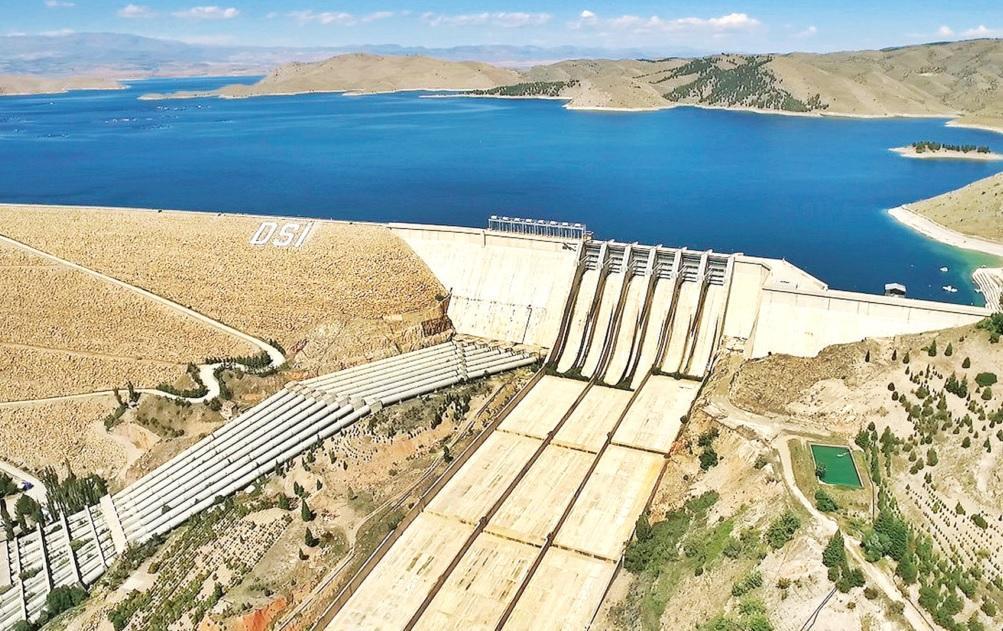Hydropower in Turkey lags behind growth in renewables
LONDON

The share of wind and solar electricity generation in Turkey in the first half of the year has steadily grown to 12.9 percent, ranking Turkey 17th among European countries, a new report from Ember, a London-based think tank said
However, the share of hydropower, which constitutes the major share of the country’s clean electricity, saw its lowest share in seven years at 21 percent due to droughts in the country.
Ember’s report covering European electricity generation in the first half of the year showed that drought is one of the biggest obstacles in Turkey for a fossil-free future.
Turkey’s share of wind and solar out of total electricity generation in 2020 reached 12.2 percent, while hydropower accounted for 33.6 percent.
“Turkey performed better than a number of countries in wind and solar electricity in the last year. However, clean power is still very much dependent on hydroelectricity and thus the share of fossil fuels and carbon intensity increase in drought years,” Ufuk Alparslan, energy analyst at Ember said.
Turkey ranked 18th in clean power among European countries in the first half of this year, dropping down from 10th place last year.
As a solution to bolster hydropower, Alparslan advised the use of hybrid installations at hydropower plants, using floating solar plants, which would boost electricity generation while also offering some protection from droughts.
The average share of hydropower of Turkey’s electricity generation in the first five years out of the last 10 years was 27.2 percent, according to the report.
In total, clean power accounted for 39 percent of Turkey’s total electricity generation with fossil fuels generating 61 percent.
In Europe, progress has been made in emissions reduction with Europe’s power sector emissions at 12 percent below pre-pandemic levels in the first half of 2021.
“Fossil fuels failed to return to pre-pandemic levels, despite electricity demand fully recovering, with clean electricity providing two-thirds of EU-27 power,” the report said.
“Now the pandemic effect on the power sector has passed, the overall trend is clear: fossil fuels are in rapid decline as Europe cleans up its power sector,” said Ember’s Europe Lead Charles Moore.
Nonetheless, he warned that progress is nowhere near fast enough to meet the EU’s own emissions target, let alone reach 100 percent clean electricity by 2035.
According to the report, in the first half of 2021, Europe’s electricity demand was back to pre-pandemic levels.
Electricity generation from fossil fuels remained 10 percent lower than before the pandemic due to the 11 percent growth rate in renewables.
















